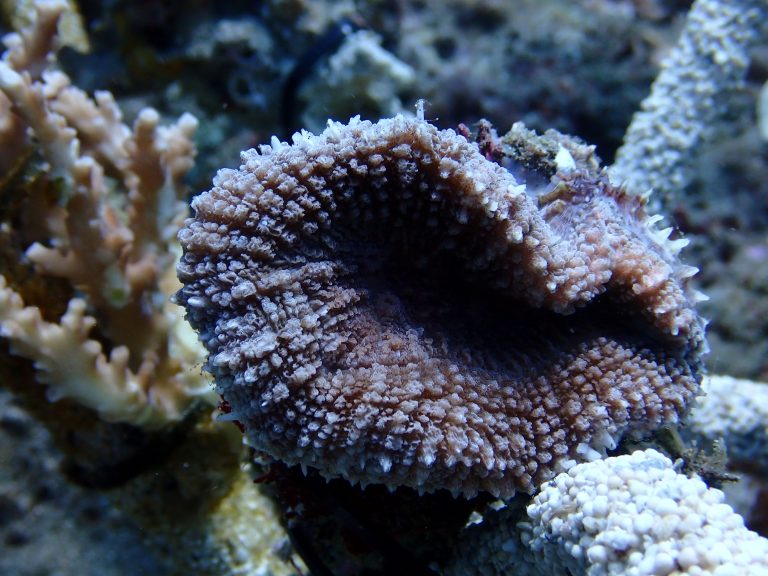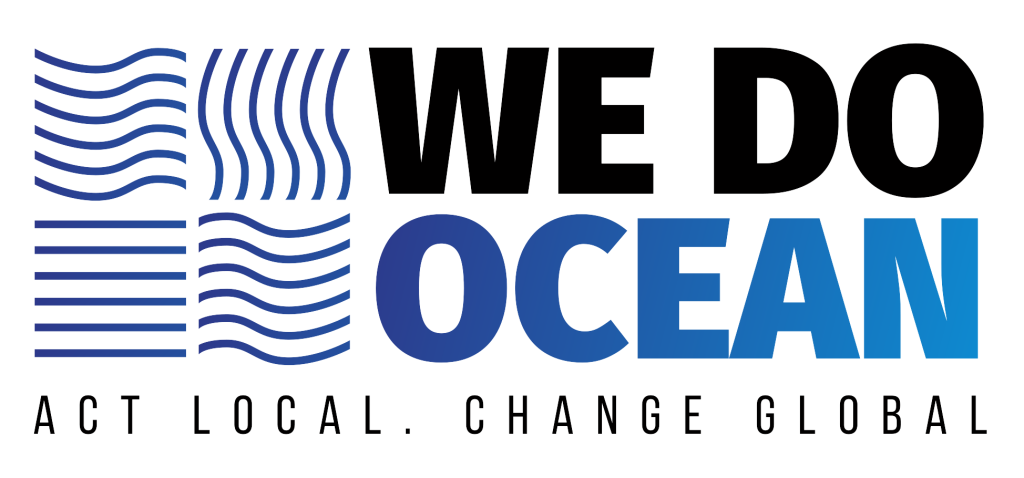It's time
to do something
about it.
THE SILENT DEATH OF THE OCEAN
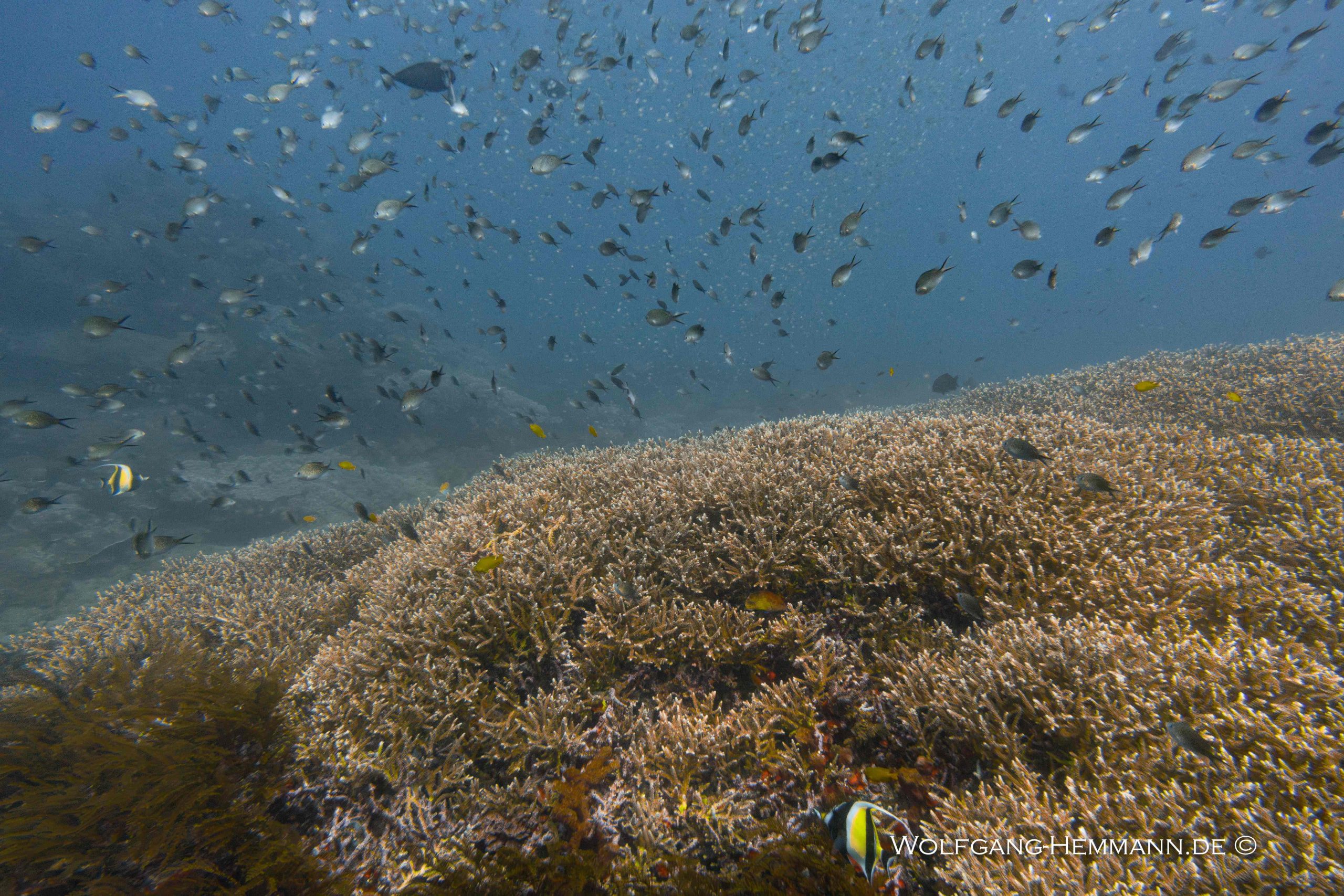
What is the problem
"No blue, no green, no sea, no life."
Sylvia Earle
Prognosis
Scientists assume that 70 % to 90 % of all coral reefs will have disappeared by 2050 and that the proportion of plastic in the oceans will be greater than the proportion of fish. Coral reefs form an infrastructure for marine life. If there are no reefs, there are no fish.
Climate
48% of emissions from fossil fuels are absorbed by the ocean! The global climate crisis is leading to coral bleaching and death due to ocean warming. It is acidifying our oceans and preventing the skeletal growth of corals.
Pollution
An estimated 14 million tonnes of plastic waste end up in the oceans every year. Plastic and microplastics, which are not biodegradable, kill marine life of all kinds.
Waste water from agricultural fertilisers and algae blooms suffocate coral fields.
Fishery
Unsustainable fishing methods, such as unauthorised fishing gear and high bycatch rates, endanger marine biodiversity. 90 % of all large predatory fish have already disappeared from the oceans.
Entire marine ecosystems have been destroyed as a result.
“There are places underwater that were once full of life – glowing corals, dancing fish, a fragile but perfect balance. Today, some of these places look like a desert: broken corals, silence, no more life.
But that doesn’t have to be the end. Corals can return. With the right methods, patience and co-operation, debris can be turned back into a reef.
Corals are the basis of life in the ocean. If we help them to recover, the fish will also return. Life will return – and we can make it happen.”
We Do OCEAN
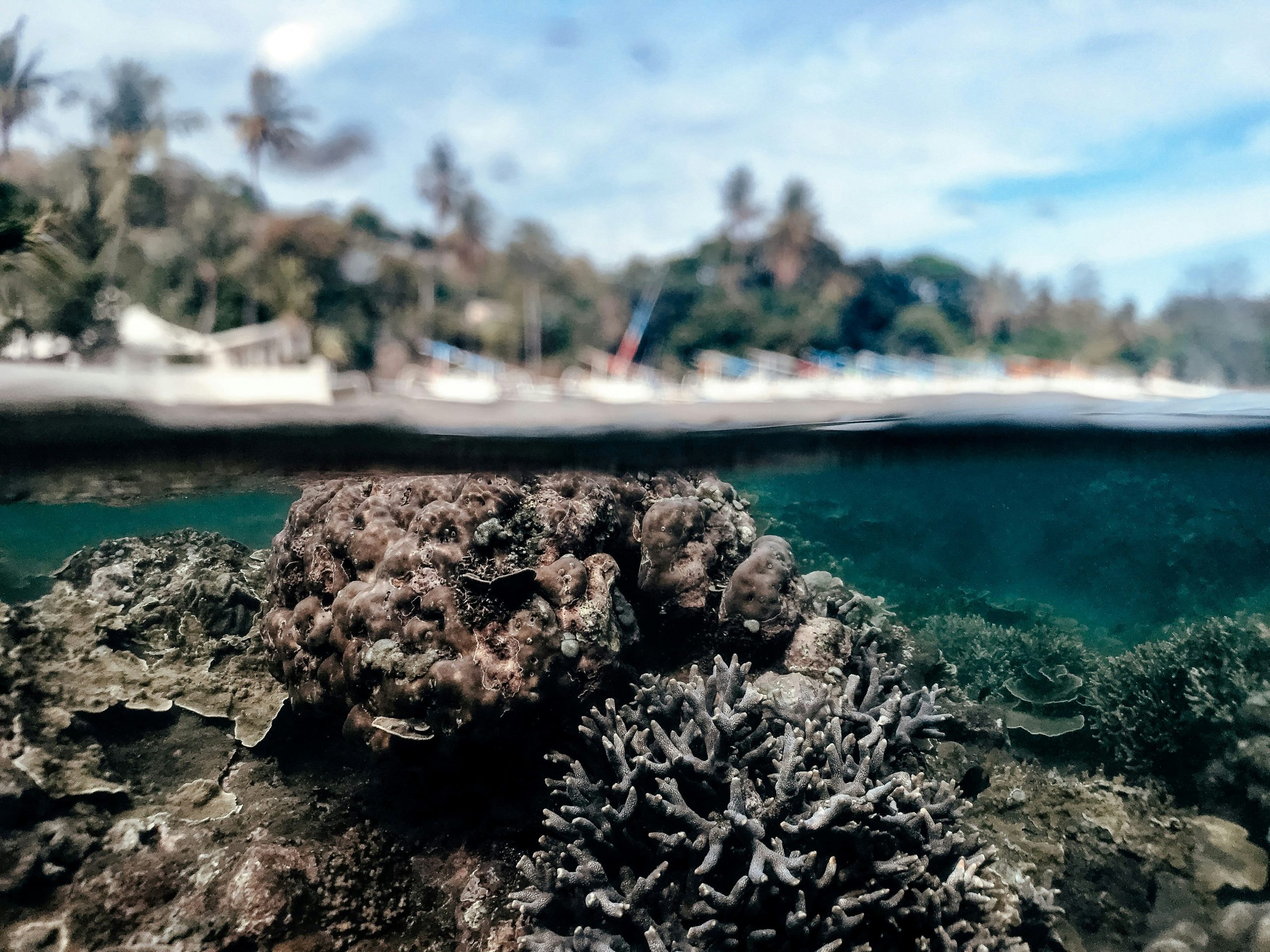
WE DO OCEAN.
We give back to the OCEAN – right here, for a FUTURE we all share.
What DRIVES US.
The story of
We Do OCEAN
The Yesterday
What we witnessed as active divers and instructors in more than a decade of diving was so alarming that it became impossible to look away without taking action. We saw first-hand how what we love, the ocean, was suffering. Reefs were disappearing or diminishing. Marine life seemed to disappear...
The Path
We wanted to get out of our comfort zone. We packed up our equipment, got on the boat and started rebuilding coral reefs. We experimented with different growing structures and reef substrates.
Originally a hobby, rebuilding marine ecosystems became our main focus together with the Livingseas Asia dive centre at the start of the pandemic in 2021 due to the absence of diving tourists.
The Present
The ocean is changing, and we are changing with it. Our experience and knowledge from the reconstruction of the Living Seas Reef has allowed us to grow. Today, under We Do OCEAN, we rely on evidence-based methods to rebuild reefs and are increasingly focussing on the issue of waste on land and in the sea. Together with the local community, we want to bring about change - for them and with them.
Welcome to
We Do OCEAN!
OUR
Vision
We are actively committed to the protection of the ocean and the sustainable regeneration of marine habitats.
In close collaboration with scientists, local communities and our partners, we develop solutions to make coral reefs more resilient, reduce marine pollution and stabilise ecosystems in the long term.
We provide answers
Frequently asked questions
Why Bali Indonesia?
Indonesia is the largest archipelago in the world and lies at the centre of the so-called Coral Triangle. It stretches across the Pacific and Indian Oceans as well as the Asian and Australian continents. Indonesia consists of around 17,000 islands and has three times more sea than land area – 5.8 million square kilometres of sea and 1.9 million square kilometres of land. The marine biodiversity here is one of the richest in the world!
Although the ocean makes an important contribution to the food security, livelihoods and way of life of the local population and the income of around 90% of coastal communities depends on it, it faces major challenges: overfishing, destructive fishing, pollution and the effects of climate change.
We Do OCEAN is on the ground – in Bali, Indonesia! Originally from Germany, more than half of our board lives in the small fishing village of Padang Bai, on the east coast of Bali. This means that we are personally involved in all projects and can act accordingly. A key success factor in achieving the goals of our projects.
Does it make sense to save the ocean when the world is in a climate crisis?
You always have the choice to do something or not. By rebuilding marine ecosystems here in Bali, we are NOT saving the planet or the oceans, but a part of it.
And NO, we are not changing the global CO2 emissions that are also destroying our oceans. But we can try to preserve and rebuild what will be destroyed in the not too distant future due to the global climate crisis: marine ecosystems and their biodiversity. Think of coral reefs as a world heritage site. We should do everything we can to protect, preserve and restore them. So that future generations can still experience this miracle.
“The greatest threat to our planet is the belief that someone else will save it. ” R. Swan
Why does the restoration of a marine ecosystem work here in Padang Bai?
This is a question that we are asked time and again and can be answered with the special geographical location of our site: the direct location of our reefs on the Wallace Line – a deep sea trench between Bali & Lombok.
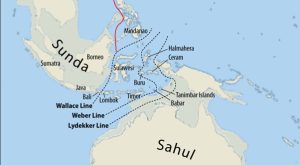
The distance between the islands of Bali and Lombok is around 30 to 40 km …. but the trench is over 1,000 metres deep. Due to this deep trench, which is right on our doorstep, and the associated cold currents, we have the advantage here – compared to other areas – that the water temperature rises to a maximum of 28 degrees and is balanced between 21 and 27 degrees throughout the year. The feel-good temperature for corals lies exactly in this range (Source: worldoceanreview).
These currents also bring a lot of nutrients to the coast, so the place we have chosen to renaturalise a marine ecosystem is perfect!
Coral bleaching is not the primary problem here in Padang Bai due to the rise in water temperature, as it is in other parts of the world, including here in Indonesia! Our special geographical location has made it possible for us to reclaim a living ecosystem from an underwater desert landscape within five years. With the complete food chain from countless small reef dwellers to large predatory fish such as reef sharks, barracudas and dolphins!
Can I offset my carbon footprint through We Do OCEAN projects?
No. Clear answer. Yes, coral reefs are carbon sinks, like the entire ocean itself. But is this really a question that should be discussed? We’d rather leave that to the politicians. It’s not about ‘cleansing our souls’ and regulating our own CO2 emissions. Rather, it’s about doing something now so that our cultural heritage, the OCEAN, still has a chance before it’s too late! Securing something for future generations and rebuilding what has been lost!
We are not having a ‘chicken and egg’ discussion. We do. You cannot reduce your own CO2 footprint with us.
But through your cooperation and your financial support, together we are making a contribution to the ocean that makes up our ‘blue planet’. With your help, you can ensure that the ocean, to which only a few people have access, is kept alive with its incredible biodiversity and receives the respect it deserves. After all, the ocean produces 71 per cent of the oxygen we need to breathe.
Get active. Do something good now for the ocean and future generations. In return, we will provide you with information about the growth of reef reforestation, the new marine ecosystems it creates, the increase in biodiversity and the improvement in the living conditions of coastal dwellers who depend on healthy marine life.
Why is it so important to involve the local community?
We Do OCEAN works together with the local community. Anything else would be wrong. Our aim is to create something that lasts for generations, that initiates a change in thinking and sustains it in the long term. This does not work by appearing to be a donor. It only works by creating awareness for the cause.
We Do OCEAN sees itself as an initiator and works to achieve a win-win situation for the future by integrating those responsible locally, involving the younger generation and creating jobs.
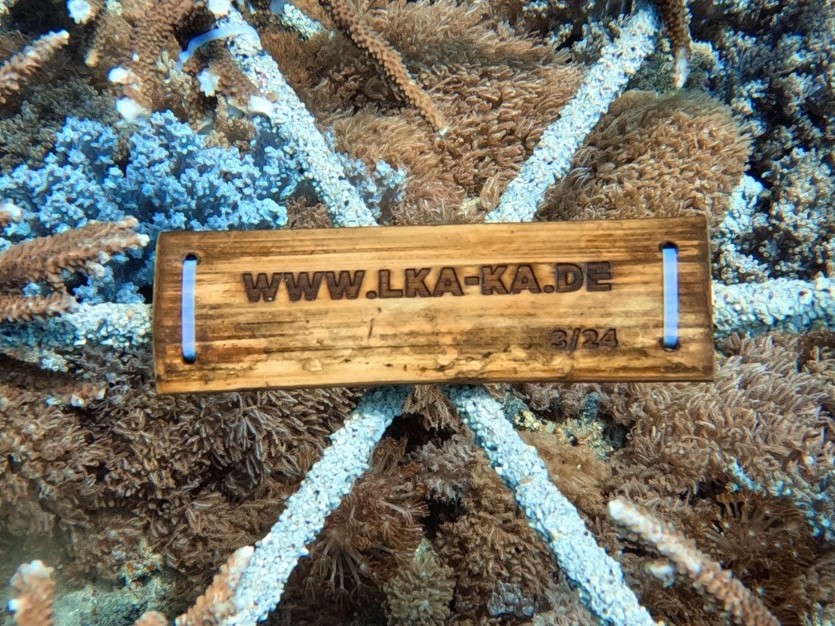
Get in touch!
We are looking forward to your message!
info@wedoocean.com
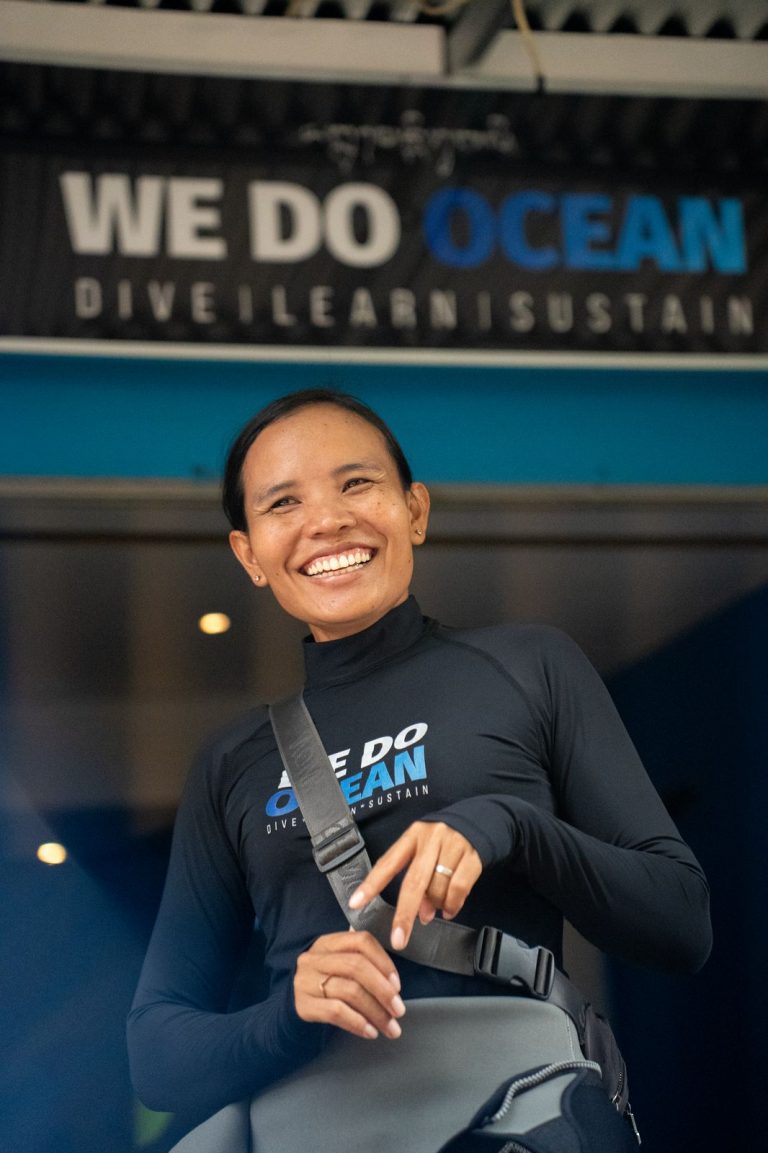
Newsletter
Subscribe to our newsletter and receive the latest information on the progress of our projects
